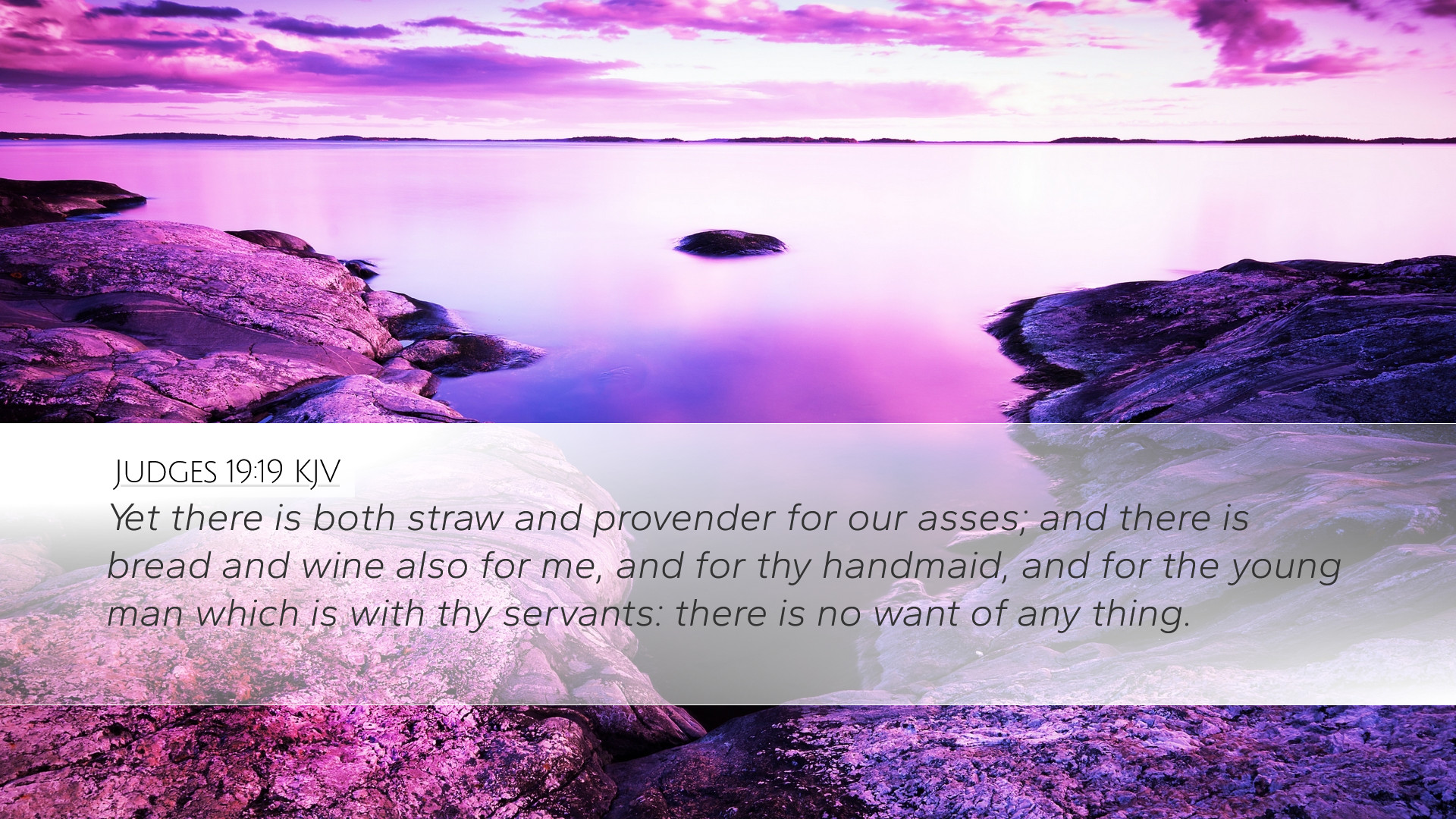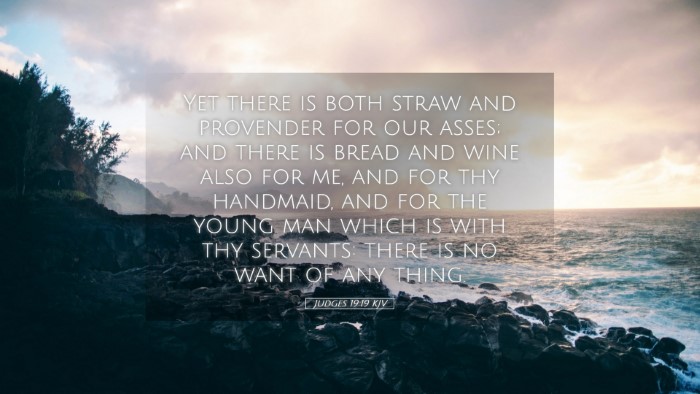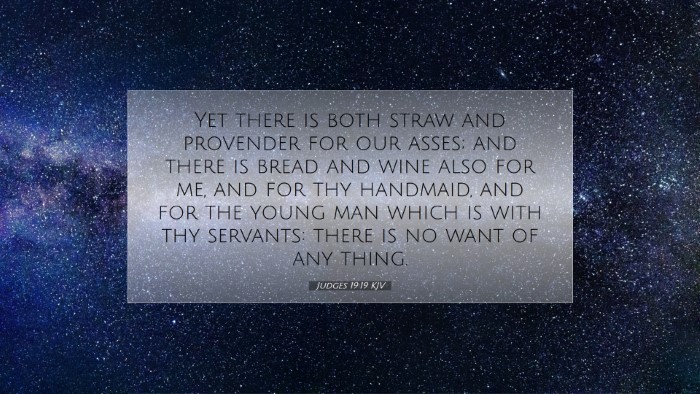Commentary on Judges 19:19
Judges 19:19 states:
"Yet there is both straw and provender for our asses; and there is room enough, and meal for us: only lodge not in the street."
Introduction
This verse sits within a narrative that illustrates the moral and social decline of Israel during the period of the Judges. As we delve into this text, we explore the background of its events, the characters involved, and their implications in the broader context of the Book of Judges.
Contextual Analysis
Judges 19 narrates the story of a Levite and his concubine who travel to Bethlehem, only to encounter a series of events highlighting the lawlessness prevalent in Israel.
- Social Context: The verse reflects a time wherein hospitality was not only an obligation but a cherished societal norm. The Levite’s appeal to not lodge in the street emphasizes the cultural values at stake.
- Moral Context: The reference to “straw and provender” indicates that while basic needs may be met, the true essence of their situation—safety and community—remains absent.
Theological Insights
This verse sheds light on several theological themes relevant to the study of scripture.
- Hospitality and Community: The Levite's insistence on not staying in the streets reflects a longing for the protection and fellowship that should exist among God’s people.
- Divine Silence: The lack of direct divine intervention during these chaotic events prompts questions about God’s presence amid societal decay.
- Human Responsibility: The Levite’s perspective also teaches about the importance of being proactive in seeking safety and community, further emphasizing human agency within divine providence.
Commentary Insights
Matthew Henry
Henry contextualizes this passage by emphasizing the Levite's intentions as he seeks a place of refuge. He notes that lodging in the street was not just uncomfortable but dangerous, reflecting on the cultural implications of hospitality and care in a time of moral failing.
Albert Barnes
Barnes highlights the practical aspects of the Levite's statement concerning provisions. He points out that despite the challenges of the time, the Levite had enough for his animals, symbolizing a point where material needs are met, yet spiritual and communal needs are starkly lacking. This duality signifies a broader message on the sufficiency of physical provision against the backdrop of spiritual desolation.
Adam Clarke
Clarke’s commentary expands upon the implications of the Levite's words. He illustrates the expectation of hospitality rooted deep within Jewish culture and draws parallels to the New Testament teachings about serving one another and providing for those in need. Clarke suggests that this verse serves as a lamentation for what could be—a community deeply engaged in loving its members rather than abandoning them to danger.
Applications for Contemporary Readers
For pastors, students, and theologians today, Judges 19:19 invites numerous applications:
- Value of Community: Emphasizing the need for supportive communities, especially as society increasingly isolates individuals.
- Hospitality: Challenging congregations to reclaim and promote the gift of hospitality as a reflection of God's love.
- Awareness of Societal Decline: Urging believers to be aware of the moral decline around them and respond with constructive actions.
Conclusion
Judges 19:19, while an isolated verse, encapsulates numerous themes vital to understanding God’s intended design for human community. Its exploration shows that even in times of darkness, there must be a yearning for collaboration, safety, and the divine presence.


